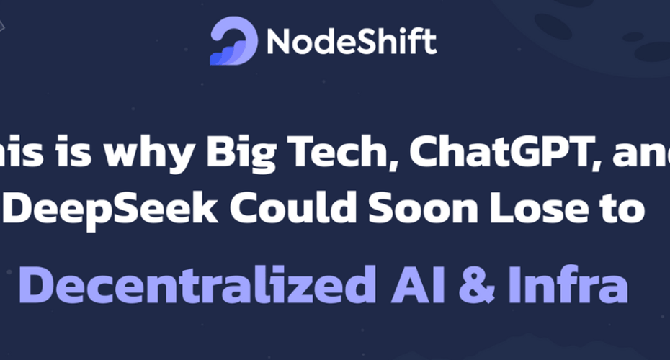Dev
1M
405

Image Credit: Dev
This is why Big Tech, ChatGPT, and DeepSeek Could Soon Lose to Decentralized AI & Infra
- Industry giants like OpenAI, Meta, Google, and Amazon have long dominated AI innovation with centralized models such as ChatGPT and DeepSeek, controlling massive datasets and strict governance.
- Centralized AI poses limitations like data privacy risks, censorship, and restricted access, paving the way for decentralized AI alternatives.
- Decentralized AI, through frameworks like Trusted Execution Environments (TEEs), focuses on transparency, data privacy, and resistance to censorship.
- Decentralized AI distributes computational tasks across nodes, ensuring privacy and security by eliminating central control.
- Censorship resistance is a key driver for decentralized AI, empowering users with control over AI behavior and promoting trust in diverse AI ecosystems.
- Decentralized AI's focus on data privacy and security addresses concerns over breaches and surveillance associated with centralized AI services.
- Experts predict decentralized AI as the future, emphasizing its potential to democratize technology and enhance data security.
- Decentralized AI challenges Big Tech's dominance by prioritizing open access, data privacy, and censorship resistance, fostering innovation and community-driven development.
- This shift towards decentralized AI is seen as a pivotal development in technology, offering solutions to limitations in centralized systems.
- The momentum behind decentralized alternatives could disrupt the AI landscape, potentially outperforming traditional centralized models in accessibility and trust.
Read Full Article
24 Likes
For uninterrupted reading, download the app